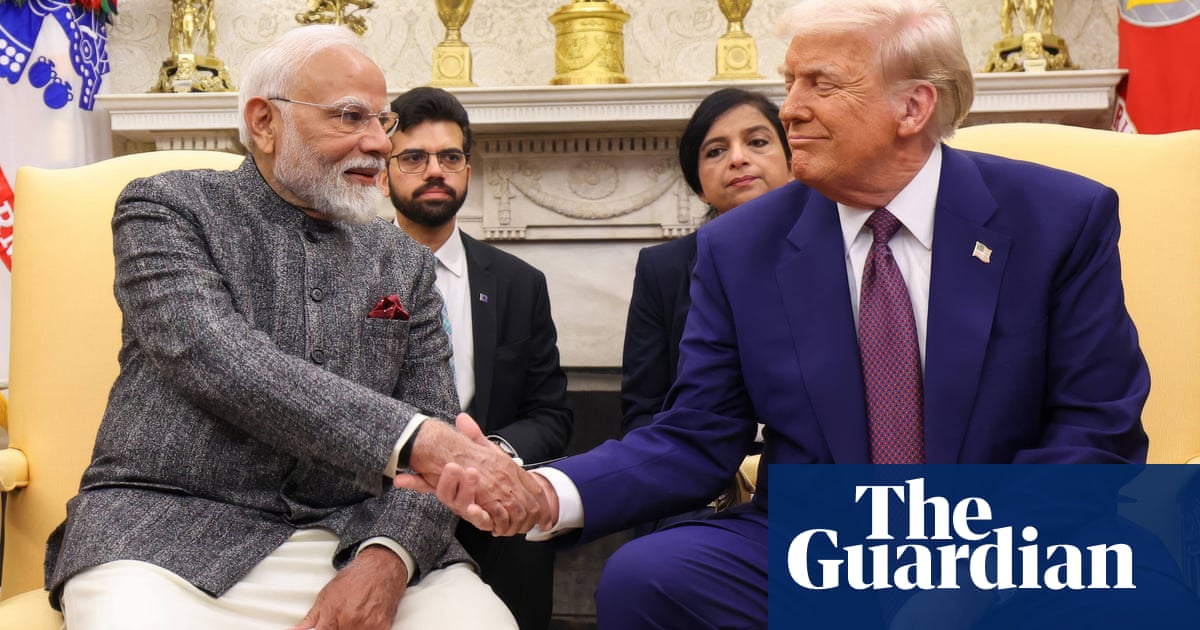One of the largest Sikh houses of worship in the US is calling on the Trump administration to investigate a non-profit it has alleged is working as a “foreign agent” on behalf of the the Indian government and prime minister Narendra Modi.
The Fremont Gurdwara Sahib, which said it draws 5,000 Sikh worshippers every week and is a “fulcrum” of the Sikh community in the US and around the world, has asked the Department of Justice to launch a national security investigation into the Hindu American Foundation, to determine whether the Pennsylvania-based non-profit should be required to file as an Indian foreign agent.
Under the Foreign Agents Registration Act, any such determination by the DoJ would require the HAF to publicly disclose details of its activities, including meetings with lawmakers, and any contracts and financial arrangements it has with the Indian government.
“The HAF has facilitated meetings between foreign principals and US lawmakers, platformed foreign principals at their own events, and consistently and unequivocally advocated for the interests of the BJP on both domestic and foreign policy matters,” a representative for the Gurdwara wrote in a letter last week to Pam Bondi, the US attorney general.
The HAF denied the claims. In a statement the group said it was a non-partisan tax-exempt charity that is wholly independent and American and has “absolutely no affiliation or ties to any organization or political parties in the US or abroad”.
It also hit out against what it called “coordinated campaigns” against the HAF by the Khalistan separatist movement, which is seeking to establish anindependent Sikh state.
“To discuss these dangerous and false accusations against us from activists supporting transnational violent separatist movements focused on India, [the] HAF welcomes the opportunity to meet with attorney general Pam Bondi, FBI director Kash Patel, director of national intelligence Tulsi Gabbard, as well as all homeland security officials,” the HAF said.
The allegations and counter-claims come at a tense time between Sikhs who support an independent state and the Indian government. Individuals connected to the Indian government have been accused in both Canada and the US of waging a campaign of transnational repression against Sikhs outside of India after the 2023 assassination of Hardeep Singh Nijjar, a Canadian advocate for Khalistan.
The Canadian government hassaidthere were “credible allegations” that “agents of the Indian government” were behind Nijjar’s death.
In the US, prosecutors have alleged that at agent of the Indian government directed theattempted assassination of an American citizenwho is also a Sikh activist.
A recent investigation by Al Jazeera, the news outlet, reported that when the HAF emerged two decades ago it was a voice for the Hindu community in the US, and not a “champion” of the Indian government. That, Al Jazeera reported, changed since Modi became prime minister in 2014, when HAF is alleged to have “ramped up its political activities in favour of the Indian government”.
The HAF has not faced accusations that it is involved in violent campaigns against Sikhs. In its letter to Bondi, the Gurdwara said the HAF “has facilitated meetings between foreign principals and US lawmakers, platformed foreign principals at their own events, and consistently and unequivocally advocated for the interests of the Bharatiya Janata party on both domestic and foreign policy matters”.
Any determination by the DoJ that the HAF was in fact working on behalf of the Indian government would require the HAF to publicly disclose details of its activities, including meetings with lawmakers, and any contracts with the Indian government.
The Indian embassy in Washington did not respond to a request for comment.
